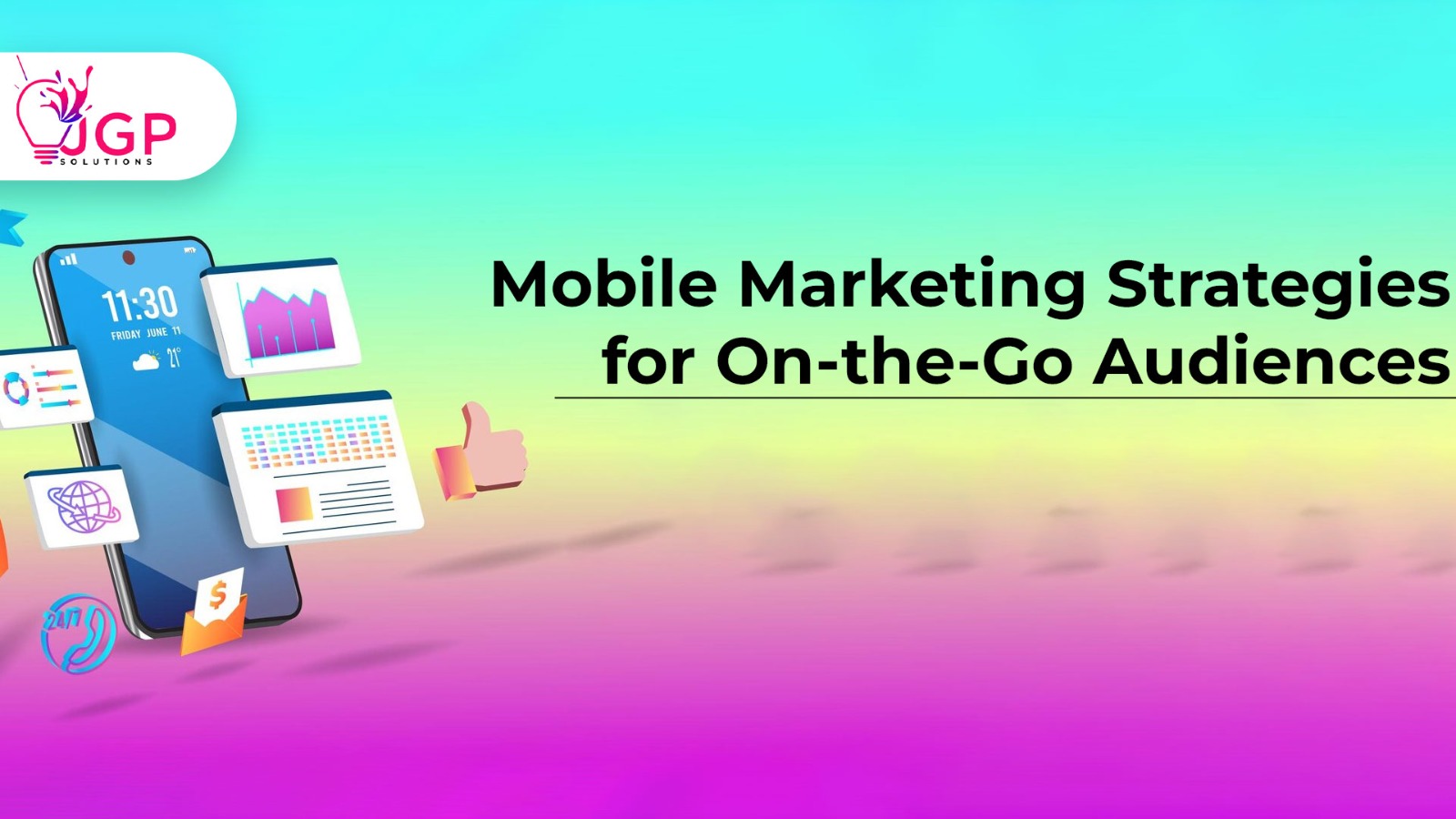Introduction: Mobile Marketing
In the era of smartphones and constant connectivity, mobile marketing has emerged as a pivotal strategy for businesses looking to engage with their audiences on-the-go. With an increasing number of people relying on their mobile devices for information, communication, and entertainment, it has become imperative for businesses to adapt and optimize their marketing strategies accordingly. In this blog post, we will delve into the world of mobile marketing, exploring its significance, key strategies, and the evolving landscape of reaching audiences in motion.

The Rise of Mobile Marketing:
Mobile marketing has witnessed exponential growth over the past decade, fueled by the widespread adoption of smartphones and the availability of high-speed mobile internet. As of 2022, there were approximately 3.6 billion smartphone users globally, a number projected to increase steadily in the coming years. This surge in mobile device usage has transformed the way consumers access information, make purchasing decisions, and interact with brands.
Significance of Mobile Marketing:
- Accessibility and Convenience: Mobile devices offer unparalleled accessibility, allowing users to access information, browse products, and make purchases anytime, anywhere. This level of convenience has reshaped consumer expectations, making mobile marketing an essential channel for businesses to connect with their target audience.
- Personalization: Mobile marketing enables personalized interactions based on user behavior, preferences, and location. By leveraging data analytics and user insights, businesses can tailor their marketing messages to resonate with individual consumers, creating a more personalized and engaging experience.
- Real-Time Engagement: Mobile devices facilitate real-time communication, enabling businesses to engage with their audience instantly. Whether through push notifications, in-app messages, or social media updates, brands can stay connected with users in real time, fostering a sense of immediacy and relevance.
Key Strategies for Mobile Marketing Success:
- Responsive Web Design: With a growing number of users accessing websites on mobile devices, having a responsive web design is paramount. A mobile-friendly website ensures a seamless and optimized experience across various screen sizes, improving user satisfaction and retention.
- Mobile Apps: Developing a mobile app can provide businesses with a direct channel to their audience. Apps not only enhance brand visibility but also offer features like push notifications and personalized content, fostering a stronger connection with users.
- SMS Marketing: Short Message Service (SMS) marketing remains an effective and direct way to reach audiences. Sending targeted and relevant messages can drive engagement and prompt immediate actions, making it an invaluable tool for time-sensitive promotions and updates.
- Location-Based Marketing: Leveraging location data allows businesses to send targeted messages to users based on their geographic location. This strategy is particularly effective for brick-and-mortar stores, offering promotions or discounts when users are in proximity.
- Social Media Advertising: Social media platforms are a hub of mobile activity. Utilizing targeted advertising on platforms like Facebook, Instagram, and Twitter enables businesses to reach specific demographics, engage with users, and drive traffic to their mobile apps or websites.
- Mobile SEO: Optimizing for mobile search is crucial for visibility in search engine results. Mobile SEO involves creating mobile-friendly content, optimizing page speed, and ensuring a seamless user experience, all of which contribute to higher search rankings.
The Evolving Landscape:
- Augmented Reality (AR) and Virtual Reality (VR): The integration of AR and VR technologies into mobile marketing is transforming how brands engage with audiences. AR allows users to interact with products through their mobile devices, while VR offers immersive experiences, creating new opportunities for innovative marketing campaigns.
- 5G Technology: The rollout of 5G technology is set to revolutionize mobile marketing by providing faster internet speeds and lower latency. This will enable more sophisticated and data-intensive applications, paving the way for enhanced mobile experiences, including high-quality video content and augmented reality.
- Voice Search Optimization: As voice-activated virtual assistants become more prevalent, optimizing content for voice search is becoming crucial. Businesses need to adapt their mobile marketing strategies to accommodate the growing trend of users relying on voice commands for information and assistance.
- Ephemeral Content: The popularity of ephemeral content on platforms like Snapchat and Instagram Stories highlights the changing nature of mobile content consumption. Businesses can leverage the temporary nature of such content to create urgency and exclusivity in their marketing campaigns.
Conclusion:
Mobile marketing is not just a trend; it’s a fundamental shift in the way businesses connect with their audience. As the mobile landscape continues to evolve, staying ahead of the curve is essential for businesses seeking to maximize their reach and impact. By embracing responsive design, personalized interactions, and emerging technologies, businesses can create a mobile marketing strategy that resonates with today’s on-the-go audiences. In this dynamic and competitive digital landscape, the key to success lies in the ability to adapt, innovate, and consistently deliver value through mobile channels.





